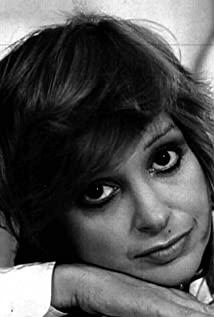The director left a grassy gray line for Madio's sexual orientation in the shot.
On December 31, 1983, Madio returned to his sister's home from the police station. Madio, who is alienated from his family by nature, can appear at the family gathering on New Year's Eve, which is already a surprise for others. He tried to blend into the warm atmosphere, played board games with his family, and was careful not to take off his jacket to prevent the holster and pistol from being seen by everyone.
When he discussed with his mother in the small room where to put the gun, he wanted to completely make himself a warm part of the family like everyone else, but at this time, the embarrassment of being speechless with his mother made him feel awkward. He finally gave up trying. Some things really can't be done. He lied about something in the police station, quietly left home and returned to his apartment. A few minutes later, in the midst of fireworks, Madio turned over and fell from the balcony.
Many comments have analyzed the inevitability of Madio's suicide: his upright and kind personality made him unable to accept the unchangeable gap in reality. Very few comments mentioned Madio’s same-sex orientation.
This is not a same-sex movie . Whether it pays attention to Madio’s sexual orientation, there will be no gap in understanding for watching the movie. However, if you can notice the difference in Madio from the perspective of sex, there will be one more factor to understand his character performance and the ultimate tragedy.
In fact, the director gave several hints about Madio's sexual orientation in the film.
Soon after the opening of the film, Madio and Nicola went to a dance party together. There is a set of lenses like this.
The next shot was cut to Nicolas.
The next shot:
Is it because Madio's melancholy attribute broke out today?
Maybe the female partner at the prom is not Madio’s food? A few days later, Madio took Nicola and friends to play with a prostitute he knew.
Before going out, Mateo took out the hidden money from the book and put on a clean shirt. While waiting by the campfire, he was sure that the prostitute would come, looking like he was familiar with the road. However, in the mouth of the prostitute:
At least for prostitutes, Madio is different from other "clients" including Nicola.
In the middle of the film, Madio drove to find another sex worker, the one who gave him the necklace.
The contours of the forearms, hands and face are firm, and the voice is thick. The lipstick is scribbled above the lips, which shows that this sex worker is not a natural female. Although Venezuela is not as famous as Thailand for shemales, there are also transgender people. For example, the winner of the 2014 International Transgender Pageant was from Venezuela, which was also reported by the media at the time.
The question is, is Madio looking for transgender services, "hungry for food" or "intentionally"? The answer is still to be found in the previous set of shots.
Before driving out, Madio was alone in the kitchen. He took a glass of water from a cup and drank it thoughtfully. The shot was short. The first time I saw this place, I had a little doubt. I think many audiences will agree that even if the film length reaches 366 minutes, the director is not a person who abuses the lens. What is the purpose of such a single shot of a major character?
After 40 minutes, the film gave the answer.
On December 31, 1983, from a family gathering, it can be said that Madio, who "escaped" back to the apartment, couldn't call Melalie, and again picked up a glass of water from the kitchen, showing a thoughtful look.
Putting down the water glass, Madio opened the balcony door.
Drinking water is like Madio's conditioned reflex. From the director’s point of view, drinking water is a key that symbolizes "loneliness" . A key can only open a door. For Madio, this door is-"I want to do something to make myself truly relaxed Things".
Last time he chose to follow his heart and find a male sex worker; this time he chose to jump off the balcony.
This is Italy. For Catholic reasons, Italy is more conservative in Western European countries.
When the film began in 1966, Madio took the private money and changed his shirt before going out. He ran into a quarrel between his parents: In order to get the funds to expand the business, his father mortgaged the family house, and his mother was very angry. In the end, the younger sister eased the family dispute, but the mother still couldn't forgive the father for a while, and said angrily to the younger daughter: "It's a pity that the country does not allow divorce..."
It was only in 1972 that Italy legislated to allow divorce.
The movie "Divorce in Italy" talks about the "efforts" that the empathizing nobles put in to escape the siege under the background of being unable to divorce.
This is already the case with marriage, and it is conceivable to treat homosexuality.
From the movie "The Perfect Stranger", which hit last year, we can get a glimpse of Italy's conservative attitude towards homosexuality. The story takes place at the moment. Even in the face of a group of good friends who grew up in childhood, a middle-aged man in the deep cabinet still has to guard his secrets carefully. After his sexuality was accidentally known, what he faced was the brutal termination of the contract from his work unit and the stubborn questioning of his friend.
Time goes back to the last century, and even the vigorous background of same-sex equal rights is gone.
In the film, Dad comes to Nikolai's house to visit his little granddaughter. Dad saw that Nikolay was still tapping on the typewriter with two fingers and asked for help. Nikolai learned the secret of his father's terminal illness and did not reject his father's kindness.
In the process of sorting out the trial records, Nicola read that the psychiatrist under trial punitively used electric shock therapy on the patient, and this doctor believed that homosexuality is a disease that requires special treatment (electric shock). Dad turned around and asked seriously:
This line of "homosexuality is not a disease" does not affect the context at the time, plus it is the director's goodwill. It seems that in a parallel time and space, the family can completely accept the real Madio. But in reality, the vast majority of people in the world still believed that homosexuality was a mental illness.
Mateo has his own set of standards for good and evil.
He can stand up against the teacher in the exam, steal the mentally ill people who have suffered electric shocks, rescue his comrades with violence, and scold and beat the drug dealers who are confident in finding someone to commit crimes with the parents who watched the murder scene with their children. For what he believed to be "correct", Madio did a lot of things that went beyond the rules of the world, regardless of his own consequences.
On the issue of "love", his standard of good and evil has failed. Even if he goes to a prostitute and spends a night with the girl who admires him, he can't deceive his feelings. He can't fall in love with women.
Repressed homosexuality can cause a variety of problems. One type of problem is that it may lead to abnormal family relationships. A person can't bear that his relatives know that he is an unreal self, so he chooses to avoid it, deliberately alienating the family relationship.
After being transferred back to his hometown, Madio did not tell his family. While driving, he met his elderly parents staggering by the side of the road. He didn't stop to say hello and drove straight away.
So many times, Madio dared to bet on his life to insist on doing the right thing. Doesn't he even have the courage to say hello to his parents?
Yes, it just doesn't. This is not unfilial, it is a cowardice that cannot compromise with oneself.
The next time Madio heard news of his father, it was his death.
On New Year's Day in 1984, the family came to Madio's apartment.
Seeing a house of relics, her mother wanted to take something with her, so she persuaded her children to help bring some books back with a pleading tone. Books are what Madio loved all his life. A cold, aging, and grieving mother can only hold a few books.
When I went out, I saw the workers cleaning Madio's blood. My mother was emotionally broken again, and the book she had just held as a baby was thrown out heavily. She was angry with herself.
The night before, her son suddenly visited. Even though she has been estranged for many years, the instinct of maternal love still made her feel the abnormality of her son. In the whole house, she is the person who pays the most attention to Madio.
She wanted to care but was afraid to disturb, except for a few polite remarks, her mother could only smile sensitively and cautiously.
too late. Mother didn't know where Madio's melancholy came from, nor did he know where his life would go. A mother can only watch her son pass by from the world quietly, at a loss as to what to do.
Post note:
In the comments, some Douyou believe that it is suspected of over-interpretation to classify Madio's sexual orientation as homosexual. I went to the extranet and searched the related content of the video, and found the promotional materials of the video. The address is as follows: http://www.public.asu.edu/~srbeatty/466/TheBestofYouth%20Pressbook.pdf
Part of the information is an interview with Mateo's actor Alessio Boni, which mentions that he has made a lot of effort in shaping the character's image. One of the passages talks about Mateo’s gender cognition. The actor thinks Mateo has a strong sexual ambiguity, "He has a strong – repressed, undisclosed-homosexuality." and also in the interview. Mentioned that the prostitute thinks Madio is "strange", and Madio is looking for a transvestite (transvestite) sex service.
Matteo has a strong sexual ambiguity, a problem with women, but nonetheless he still feels attracted by them. He falls a little for Giorgia (Jasmine Trinca), but is unable to understand her silent love declaration beside the jukebox. He falls a little for Mirella (Maya Sansa), but is unable to return her generosity. He has a strong-repressed, undisclosed-homosexuality. In the beginning while bringing his brother and friends to a whore, we see him already with changed features. She's going to be the first one to tell us that Matteo is "weird". And during the years, prostitutes are going to be a fixed appointment, as substitutes for the real women he doesn't want or doesn't know how to deal with. The last one will be a transvestite.
I would like to add a translation of this piece of English. I only put the English here and did not translate it. I am indeed lazy, and it has also affected many friends' understanding of the film.
Alessio Boni understands his role as Matteo this way:
Matteo has a strong gender ambiguity and obstacles when dealing with women. Nevertheless, he will still be attracted to women. He liked Giorgia a little, but he couldn't understand her silent expression of love by the jukebox; he also liked Mirella a little, but he couldn't repay her generosity. Matteo has a strongly suppressed, unrepresentable homosexual complex.
At the beginning of the film, Matteo took his brother and friends to the prostitute, and people can see that the character is unusual. The prostitute here will be the first person in the film to tell the audience that Matteo is a bit "strange". For many years, when Matteo didn't want to, or didn't know how to deal with women, it became his regular habit to look for sex workers. He regarded these people as "substitutes" for real women. Matteo's last escort partner is a transvestite.
I believe that Alessio Boni's remarks originated from the screenwriter, director and his own understanding of the role, and he left this understanding on the role of the film.
Good actors often create good characters on the basis of rich biographies. I think the interpretation of the characters by the performers is closer to the original intention of the creators. However, when it comes to the evaluation of literary works, I am a "reader/audience supremacist". The subjective perception of the reader/audience is the focus of what viewpoints and how many viewpoints are conveyed in the film.
Literary works are not the reading comprehension questions of the language examination, and there is no "standard answer". What kind of person Madio is, your opinion is more important.
I wrote this article at the time because I personally felt some possibilities from the plot mentioned in the previous article after two or three movies. I searched for similar views on the Internet, but found that there are few similar discussions on the Chinese Internet ( In fact, there are not many English web sites. After all, it is an Italian movie or a 6-hour niche literary film), so I want to record this idea. If other viewers search for similar content, they can at least find something. In other words, the above viewpoint is not a "final conclusion" but a "coordinate".
View more about The Best of Youth reviews











